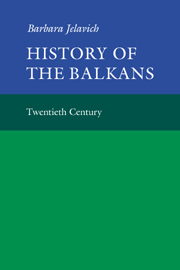Summary
This narrative, which comes to an end in the early 1980s, has covered the successive transformations in the lives of the Balkan people since the end of the seventeenth century. At that time the majority lived under the jurisdiction of the Ottoman Empire and were members of the Orthodox church; their faith and their common subjection to Ottoman rule were the major sources of unity among them. A minority, Catholic Croats and Slovenes and Orthodox Romanians and Serbs, were under Habsburg rule. The Balkan people, largely peasants, shared certain experiences. Their chief ties were to their families and to their local communities; they supported themselves principally as farmers, herdsmen, or fishermen. Some were merchants and artisans, and an even smaller number rose to become a part of the political leadership. Largely illiterate and speaking dialects of the major languages, these people nevertheless had similar views about their lives and the society to which they belonged. With their outlook shaped by the church and by a complex heritage of local traditions handed down generation after generation, they formed settled and ordered societies whose basic concepts and rules of behavior were accepted by their members. Since they lived in an age when central governments were not expected to provide social services, they depended upon the village and family units, which offered protection for a population with a subsistence economy and which sheltered the aged, the sick, the young, and those who could not otherwise deal with the problems of these violent times.
- Type
- Chapter
- Information
- History of the Balkans , pp. 439 - 446Publisher: Cambridge University PressPrint publication year: 1983



